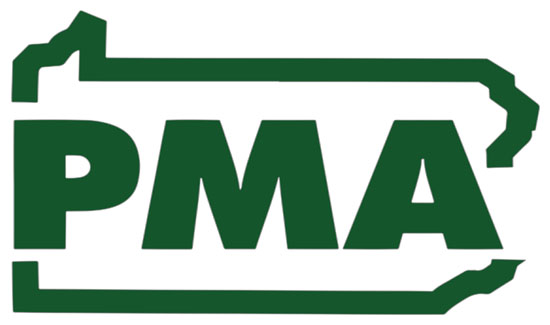Wolf’s Bridge Tolling Plan Temporarily Halted by Court

The Department of Transportation (PennDOT) has appealed a ruling by a Commonwealth Court judge that halted the Department’s plans to toll nine highly traveled commuter bridges in the Commonwealth.
The $2.2 billion Major Bridge Public-Private Partnership (P3), kicked-off in 2020, has been blasted by businesses, consumers, and lawmakers for its poor timing (especially now – given current record high fuel prices) and for shutting out the stakeholders most affected by the tolls.
PMA President & CEO David N. Taylor said that PennDOT’s appeal was unsurprising, as it fits with the method of operation of the Wolf Administration over its nearly eight years in office.
“As with the pandemic business shutdown orders, the shutdown waiver process, and the RGGI electricity tax, the Wolf Administration always believes that it knows best,” Taylor said. “Our constitutional order does not grant dictatorial powers to the executive branch, so we welcome the court’s stay. Sadly, Governor Wolf’s go-it-alone approach continues to inflict great damage on our people, our economy, and our system of representative self-government.”
In her May 18 ruling, Judge Ellen Ceisler agreed with lawyers for eight municipalities, who brought the action in March, that the Department acted in virtual secrecy, and did not invite affected parties, most notably local motorists paying unprecedented high fuel prices, for their input into the plan.
“The [Public-Private Transportation Partnership] board essentially approved a massive multi-billion-dollar infrastructure initiative on an admittedly meager record,” Ceisler wrote in her 62-page opinion. A temporary injunction is necessary, “to redress immediate and irreparable injury in the form of the likely violation of Act 88,” she said, referring to the state’s P3-enabling statute.
She also ruled that authority given to the private team allowing it to enter subcontracts without board approval, “combined with the less-than-transparent manner in which the initiative was approved, seriously undermines public confidence in the P3 process and in public procurement.”
In their complaint, the municipalities argued that the P3 board did not name the bridges to be tolled when it approved the initiative and did not consult with affected parties or consider whether the plan is in the best interest of the Commonwealth, as required by the 2012 P3 act. The municipalities also argued that Act 88 itself is an unconstitutional delegation of legislative power since it provides no standards for determining whether a project is in the best interest of the Commonwealth. And they argued that Act 88 also undermines the legislature’s exclusive authority under the constitution to levy taxes – in this case, the tolls.
The news was greeted with relief by lawmakers and businesses who opposed the implementation of tolls with inflation at a 40-year pinnacle, and gas and diesel prices at record highs.
Rebecca Oyler, President & CEO of the PA Motor Truck Association (PMTA), said it was clear from the judge’s opinion “that PennDOT violated the P3 law from the beginning.”
“From the day the initiative was announced in November 2020, PMTA has pointed out that the agency failed to follow basic steps not only required by law, but also expected of any government action – communicate before acting,” Oyler said in a statement.
She continued: “Had they communicated with the Pennsylvania trucking industry, they would have heard that the consequences of tolling would be catastrophic. With diesel prices already at record levels, now is the worst possible time to add $5000+ per truck per year for trucking companies and other small businesses. These are costs that are ultimately passed on to consumers.”
State Rep. Dawn Keefer (R-York/Cumberland), whose district encompasses one of the proposed projects, the I-83 bridge over the Susquehanna River, applauded the Commonwealth Court on its ruling.
“While this is a step in the right direction, the Legislature must put a permanent end to this initiative by passing Senate Bill 382,” she said.
“The bill, which received bipartisan support in the House, would stop the governor’s tolling plan while ensuring any tolling proposal must go through the General Assembly instead of a governor unilaterally deciding to impose yet another tax on drivers.”
SB 382, introduced by Wayne Langerholc, Jr. (R-Cambria), chair of the Senate Transportation Committee, would reform the P3 process.
Langerholc noted in the legislation’s sponsorship memo that Act 88, which created the P3 Board “is the framework for public-private partnerships including but not limited to, the construction of Compressed Natural Gas fueling stations at transit agencies and the rapid replacement of 558 state-owned bridges.”
But Langerholc said the tolling of major interstate bridges is a new initiative, one that gives PennDOT, “the authority to essentially tax and appropriate funds without additional oversight from the General Assembly.”
After the May 18 ruling, Langerholc said, “the court’s ruling on the preliminary injunction is restoring proper checks and balances on PennDOT’s power. I now urge Gov. Wolf to work with the legislature and find a compromise that is in the best interests of the Commonwealth.”
SB 382 is now in the Senate Rules and Executive Nominations Committee, awaiting action in House amendments.







